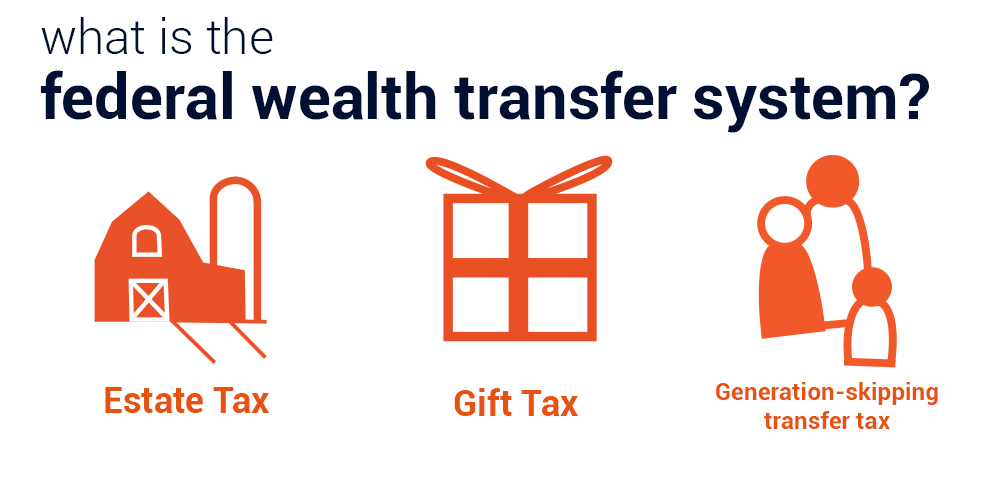Press Contact:
Katie Niederee, Julia Lawless (202) 224-4515
Tax Talk: Explaining the Estate Tax
Arcane Tax Disrupts Financial Planning for Families, Farmers & Small Businesses
The concept of a federal wealth transfer tax system dates back to 1797 when its revenue was primarily used to finance wars or prepare for the threat of wars. Fast forward to recent history where the federal wealth transfer tax system is made up of the federal estate, gift and generation-skipping transfer taxes. Proceeds are lumped into Treasury’s “general fund” used for federal government spending.
Let’s break them down:
-
Estate tax – A tax on the right to transfer property at death, which includes assets or certain interests at the date of death.
-
Gift tax – A tax on the transfer of property by one individual to another while receiving less than full value in return.
-
Generation-skipping transfer tax – A tax that applies in addition to gift or estate taxes that skips a generation or more.

Over the last two decades, estate and gift tax laws have been in flux – making financial planning difficult for hardworking families, small business owners and farmers. On top of that, since 2012, the maximum estate and gift tax rates have been set at a whopping 40 percent.
Despite the high tax rates, the estate and gift tax are a minuscule portion of the United States’ overall federal tax revenues – about one half of one percent.
The real-world impact
As a result of the estate tax, sometimes referred to as the “death tax,” small business owners and farmers are often forced to purchase insurance to prepare for the tax in order to avoid having to sell the business or farm upon their passing. Even in cases where there is no insurance or the whole business is not sold, the family of the decedent is forced to either divide up the business or borrow against it. This added cost is then passed along, resulting in higher prices in the goods and services produced by those farmers and businesses. In other words, it is American consumers, workers and job seekers are who ultimately pay the estate tax. Common sense, sometimes absent among wealthy liberal elites in Washington, tells us that someone has to pay the tax.
The moral argument
Sixteen years ago the late Nobel laureate Milton Friedman wrote a letter arguing against the estate tax. Earlier this month, more than 700 economists – including four additional Nobel Laureates – cosigned and re-released the Friedman letter, urging Congress to address the estate tax as part of comprehensive tax reform. As Friedman noted, the estate tax is essentially a tax on virtue – discouraging individuals from “living frugally and accumulating wealth.”
Through the use of sophisticated tax planning techniques, the so-called “rich” can often plan around the estate and related taxes to avoid having their legacies hit by the taxes. Lower- and middle-income families often lack the resources to hire pricey tax attorneys to manage their estates in order to avoid taxes, or don’t want to surrender control over businesses that they built from the ground up. This leads many Americans to be skeptical that the tax system treats the little guy the same as the so-called “rich.”
Bottom Line: Americans are punished for building up a business or farm and potentially having it taken away at the moment of death by the federal government. As Congress works toward a united approach for comprehensive tax reform, its members will continue to explore the most effective ways to mitigate the negative impact of the estate, gift and generation-skipping transfer taxes.
###
Next Article Previous Article
